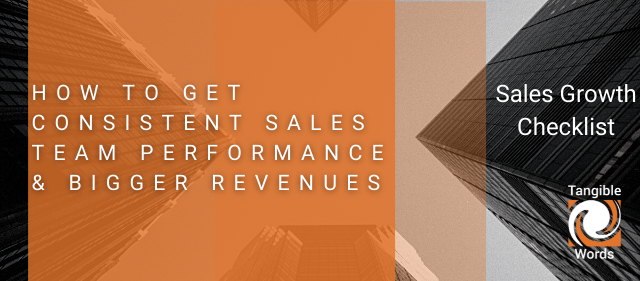SHARE
How Does the Sales Dashboard HubSpot Offers Improve Sales Performance?

HubSpot sales dashboards improve sales performance by centralizing real-time data, tracking KPIs, and helping teams make faster, data-driven decisions. They also improve team alignment by giving sales, marketing, and leadership shared visibility into performance metrics, pipeline activity, and customer engagement. By using customizable and interactive dashboards in HubSpot Sales Hub, businesses can identify opportunities, improve collaboration, and optimize their sales strategies more effectively
Frequently Asked Questions
A HubSpot sales dashboard is a customizable reporting tool that visualizes sales data, KPIs, pipeline activity, and team performance in real time.
HubSpot dashboards improve sales by providing real-time insights, identifying performance gaps, tracking lead engagement, and helping teams make faster data-driven decisions.
Yes, HubSpot dashboards are fully customizable. Businesses can create reports tailored to their sales metrics, performance goals, and pipeline tracking needs.
Sales representatives, sales managers, marketing teams, leadership, and customer success teams can all benefit from using HubSpot dashboards for performance tracking and strategic planning.
Sales dashboards should be reviewed regularly, typically weekly or monthly, to ensure data accuracy and alignment with business objectives.
It's true: sales dashboards are indispensable for modern sales teams. They consolidate data and provide real-time analytics you can share across your business. When this data is readily available, your team can make informed decisions based on performance to keep your company competitive.
Nowadays, staying ahead of your competition requires more than just a talented sales team. Businesses need tools that drive efficiency, transparency, and actionable insights. Sales dashboards in HubSpot Sales Hub provide a centralized platform that consolidates sales data and delivers real-time analytics across departments. When this data is easily accessible, teams can make informed decisions based on performance, helping organizations remain competitive and revenue-focused.
And, because increased revenue is more than just the sales people’s responsibility, sales dashboards enhance communication within the team. By providing shared access to key performance indicators (KPIs), dashboards ensure that sales representatives, managers, marketing teams, and other departments remain aligned with company objectives. This shared visibility helps create a collaborative environment where teams work toward common goals.
But what types of sales dashboards does HubSpot offer, and do they truly support sales growth? Understanding how to use dashboards effectively can help businesses achieve their goals while strengthening teamwork and operational efficiency.

How HubSpot Sales Dashboards Improve Sales Performance
Sales data is most valuable when it is easy to interpret, visualize, and share. HubSpot sales dashboards allow users to select specific metrics and customize how data is displayed. Remember: easily digestible data = less time spent trying to figure out what the heck is happening and more time coming up with solutions and tweaking processes (and, of course, better sales performance).
HubSpot dashboards are customizable, interactive platforms that collect data from different HubSpot hubs. Businesses can add reports, monitor sales activity and track lead engagement in a visual and user-friendly format. Ready-made reports are quick hits for fast interpretation, whereas customizable options can help you delve deeper into your analysis and make some fact-based changes.
Here's how HubSpot's sales dashboards show you exactly where and why changes are needed in your sales process so you can streamline and adapt your strategies:
-
Customizable Reports: HubSpot dashboards allow businesses to tailor reports based on the metrics that matter most. Teams can monitor individual performance, track company-wide revenue targets, and measure pipeline progress. This flexibility helps organizations focus on performance indicators that directly impact growth.
-
Real-Time Data Updates: Unlike spreadsheets or disconnected reporting tools, HubSpot dashboards update automatically as CRM data changes. Access to live data allows sales teams to respond quickly to new leads, track deal progress, and adapt to market changes.
-
Intuitive Interface: HubSpot's user-friendly interface makes it easy for team members of all technical abilities to navigate and use the dashboard effectively. This reduces the learning curve and accelerates adoption for even your least tech-savvy team member.
5 Steps to Maximize Your HubSpot Sales Dashboard Effectiveness
While the sales dashboard in HubSpot does most of the work for you, there are some things you can do to make sure you’re getting the best results from the tool.
-
Regularly Update CRM Data: To provide accurate insights, ensure your CRM data is up-to-date. Maintaining strong data hygiene improves reporting accuracy and prevents misleading performance insights.
-
Train Your Sales Team: Although HubSpot is user-friendly, proper training helps teams fully utilize dashboard features. . Training your sales team to use the dashboard effectively and properly and to use all the platform features will improve sales performance.
-
Customize Dashboards Based on Business Goals: Every business tracks different metrics. Customize dashboards to monitor lead progression, call activity, deal stages, or conversion rates based on your sales objectives.
-
Review and Adjust Dashboard Metrics Regularly: Business priorities and strategies evolve over time. And, as your business evolves, your dashboard should grow, too. Periodically reviewing your dashboard settings and reports give your sales team a chance to reflect on any changes in strategy or objectives and make necessary changes.
-
Use HubSpot Support and Learning Resources: HubSpot provides extensive educational resources, including its Knowledge Base and customer support. Leveraging these resources helps teams maximize dashboard functionality and resolve technical challenges quickly.
By understanding and using HubSpot's Sales Dashboard features, you can transform your sales operations and drive your team toward success. Use it to track deals, forecast sales, or optimize performance to plan for efficiency and growth.
Beyond Reporting: Additional Benefits of HubSpot Sales Dashboards
Sales dashboards offer value beyond performance tracking. They can improve communication, streamline workflows, and strengthen overall business strategy.
1. Strengthening Team Collaboration
Sales dashboards eliminate data silos by providing shared access to KPIs and pipeline data. This enables teams to identify cross-selling and upselling opportunities, coordinate outreach efforts, and maintain consistent messaging.
2. Improving Cross-Department Communication
Sales dashboards extend their benefits beyond just the sales team, enhancing communication across different departments. By integrating with tools like CRM systems and marketing platforms, sales dashboards provide a comprehensive view of customer interactions and sales pipelines. For example:
-
Marketers can refine strategies by identifying which campaigns generate the most leads.
-
Customer service teams can monitor sales data to anticipate customer needs and provide proactive support.
3. Supporting Data-Driven Sales Strategies
Access to real-time insights into sales performance and market trends empowers sales teams to really connect with who they're selling to. It's more important than ever to know who your customer is, and using a data-driven dashboard can help you:
-
Better understand your customer behaviour.
-
Identify emerging market opportunities.
-
Make process adjustments where and when needed.

4. Increasing Accountability and Motivation
Dashboards allow sales representatives to track their individual performance and progress toward targets. Managers can provide timely feedback, celebrate achievement, and support team members who need improvement.
5. Improving Workflow Efficiency
If you've ever worked on several platforms at once, you know the struggle. Using sales dashboards to consolidate data from various sources into a single platform can help you:
-
Eliminate the need for manual data entry.
-
Reduce the risk of errors.
-
Free up sales teams to focus on high-value activities like engaging with prospects and closing deals instead of administrative tasks.
6. Preparing Sales Teams for Future Trends
As artificial intelligence and predictive analytics become more common, HubSpot dashboards will provide deeper insights into customer behavior. This allows businesses to anticipate customer needs and respond proactively to market trends.
Work with a Sales Growth Specialist to Move Your Sales Team Forward with HubSpot Know-How
Topics
- Content Creation (298)
- Growth-Driven Design Websites (167)
- Inbound Marketing (147)
- Sales Growth (133)
- Tangible Words (111)
- Search Engine Optimization (85)
- Social Media Marketing (83)
- Hubspot (79)
- Blogging for Business (75)
- Economic Development (64)
- Events & Training (60)
- Company Growth Podcast (49)
- Manufacturing (47)
- Tourism (46)
- Email Marketing (42)
- Case Stories (40)
- Testimonials & Client Feedback (36)
- Education and SaaS (23)
- Google (21)
- Careers (19)
- Inbound Marketing Agency (19)
- Cool Companies (18)
- FAQ (16)
- Alysha Dominico (13)
- Associations (7)
- Food and Beverage (7)
TW Blog Sign-Up
Learn more about how to grow your business and improve your sales team process.






%20resixed.png)
-1.jpg)
-3.png)